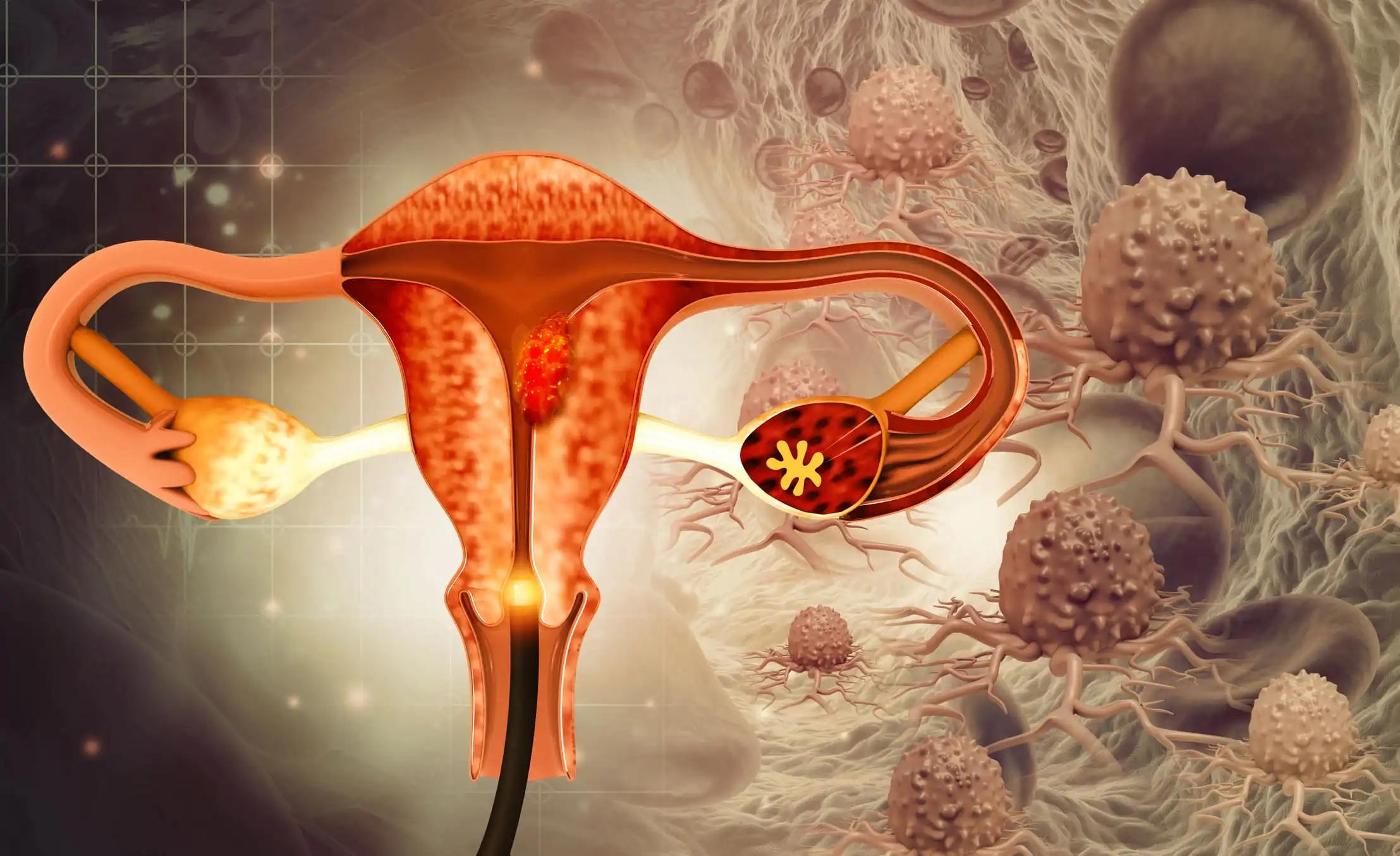KEY TAKEAWAYS
- The phase 2 trial aimed to investigate the therapeutic benefit of maintenance rucaparib in metastatic and recurrent EC.
- The primary endpoint was to determine PFS, and the secondary endpoint was OS.
- Researchers noticed Rucaparib maintenance post-chemotherapy enhances PFS significantly in metastatic and recurrent EC patients.
PARP inhibition therapy holds promise in endometrial cancer (EC) due to its efficacy in targeting DNA repair mechanisms seen in other malignancies. However, the unique pathways to DNA repair deficiencies in EC require further exploration.
Bradley R. Corr and the team hypothesized that maintenance rucaparib could offer therapeutic benefits for patients with metastatic and recurrent EC.
Researchers performed an inclusive analysis of a multi-institutional, randomized, placebo-controlled maintenance trial involving patients with metastatic/recurrent EC who had undergone 1-2 prior lines of therapy and demonstrated a complete (CR) or partial response (PR) after prior chemotherapy. Randomization was conducted at a 1:1 ratio for rucaparib (600mg PO BID) to placebo.
Treatment was administered on a 28-day cycle until progression, intolerance, or completion of the trial. Stratification of treatment arms was based on histology, number of prior lines of therapy, and response to prior therapy.
The primary endpoint was progression-free survival (PFS), with overall survival (OS) as a secondary endpoint. Exploratory analyses were conducted based on molecular profiling using immunohistochemistry (IHC) and next-generation sequencing (NGS).
About 79 patients were randomized with a median follow-up of 25.3 months (IQR 19.3-40.3). The majority (59.5%) had a CR from prior therapy, with most (73.4%) receiving treatment after adjuvant therapy. Less than half (44.3%) had previously undergone radiation.
Tumor classification revealed 0% POLE, 51.9% p53mut,10.1% dMMR, 20.3% NSMP, and 17.7% missing data. BRCA, HRD, and complete molecular data were pending at the time of presentation. In the ITT population, median PFS was 28.1 vs. 8.7 months (rucaparib vs. placebo) (HR 0.45; 95%CI 0.26-0.80, P=0.005). Median OS was NR vs. 28.4 months (rucaparib vs. placebo) (HR 0.48; 95%CI 0.23-1.03, P=0.055).
Exploratory PFS analysis favored rucaparib over placebo for patients with PR to prior therapy (HR 0.23; 95%CI 0.1-0.54, P<0.0001), following adjuvant therapy (HR 0.52; 95%CI 0.27-1.01, P=0.049), or recurrent therapy (HR 0.33; 95%CI 0.11-1.03, P=0.046). Treatment following CR to prior therapy demonstrated HR 0.49 (95%CI 0.22-1.13).
The safety profile of rucaparib was akin to prior studies with grade 3/4 TRAE’s occurring in 35.9% of the rucaparib arm, most commonly anemia (20.5%), fatigue (7.7%), thrombocytopenia (7.7%), and neutropenia (7.7%).
The study concluded that maintenance use of rucaparib after first or second line chemotherapy significantly improves PFS for patients with metastatic and recurrent EC, representing a clinically impactful therapeutic approach.
The trial was sponsored by the University of Colorado, Denver.
Source: https://sgo.planion.com/Web.User/AbstractDet?ACCOUNT=SGO&ABSID=575322&CONF=AM2024&CKEY=
Clinical Trial: https://clinicaltrials.gov/study/NCT03617679
Corr B.R, Haggerty A, Gysler S.M, et al. (2024). “A phase II, randomized, double-blind study of the use of rucaparib versus placebo maintenance therapy in metastatic and recurrent endometrial cancer.” Presented at SGO 2024.



